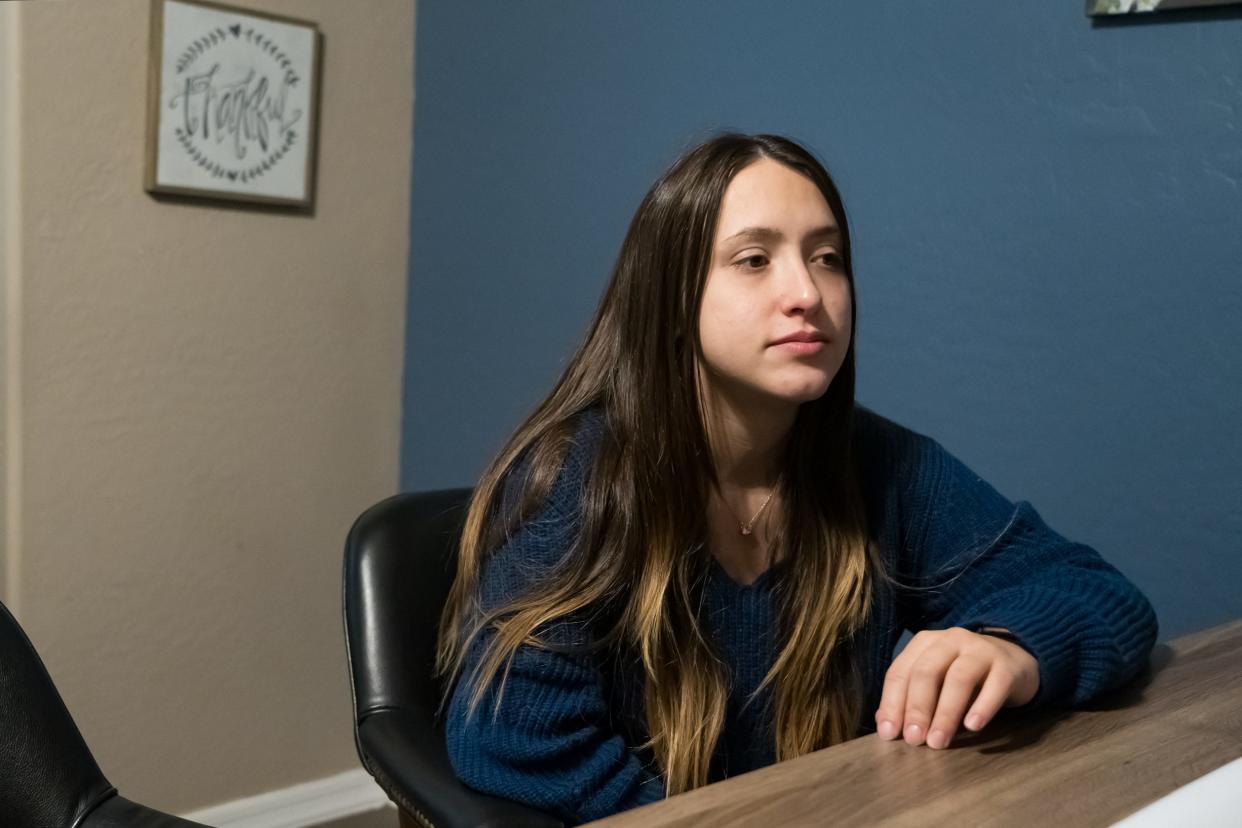Phoenix-area nonprofits help moms overcome homelessness, addiction

As LaShay Whipple sat in the hospital, ready to give birth to her daughter, she felt ready to die.
By then, Whipple said, she had lived in the streets for five years, had her sons taken by the Department of Child Safety, could not get a job and tried almost every type of drug she could.
"At that point, I didn't really care because all of me really wanted to be dead because I was so miserable," she said.
Her mentality was transformed by what Whipple called a miracle. The Phoenix-based nonprofit Maggie's Place picked her up at the hospital and brought her to a shelter, where a family coach helped her create structure in her life and taught her essential components of parenting, like meal prepping.
"I always say it kind of seems silly, but I had to learn how to shop for groceries, you know, and I had to learn how to buy what I needed," Whipple said.
Almost a decade later, Whipple works as the nonprofit's program associate, leads an addiction recovery support group and calls Maggie's Place a "home away from home" for her and her daughter.
Maggie's Place and Hope for Addiction, based in Gilbert, are nonprofits in the Valley that work to help mothers recover from addiction, heal from trauma, and build successful lives after experiencing homelessness.
Maggie's Place, Hope for Addiction and more than 150 other Arizona nonprofits received $1.6 million from readers of The Arizona Republic as part of the 2022-23 Season for Sharing campaign. The $7,500 Maggie's Place and Hope for Addiction each received from the campaign supports counseling, mentoring, parenting advice and help to secure employment and housing.
Make a tax-deductible donation to Season for Sharing by clicking here.
Laura Magruder, CEO of Maggie's Place, said these services are more critical now than ever. Over the past few years, Magruder said, she lost her niece and several women staying at Maggie's Place houses to fentanyl overdoses.
"DV and substance abuse is typically the reason that they're homeless," Magruder said. "Substance abuse, for the most part, is you're trying to self-medicate and heal the pain that's within."
Hope for Addiction founder: 'Their addiction is not their identity'
Danielle Salari was convinced she was going to die because of her addiction to drugs and alcohol. So she decided to reach out to Liz Beck, the founder of Hope for Addiction, for help, she said. As a result, Salari became the first woman to stay at the nonprofit's shelter, Freedom House, when it opened in 2019.
"I was homeless, sleeping on my mom's futon in a one-bedroom apartment, in an abusive relationship and struggling with sobriety," Salari said. "I know that I would have died, and I would have lost my kids."
Within her two-year stay, Salari developed the skills and obtained the resources she needed to handle the stresses of single motherhood. She created a routine and started doing things she "had not literally done for years and didn't have the desire to before," like getting her children in day care, getting a job, budgeting and meal planning, Salari said.
Beck said Salari is unrecognizable from the version of her she first met: homeless, jobless for a decade, and ready to go back to "a bad environment that almost cost her her life" while pregnant and with a toddler.
"When Danielle first came, she could barely string together a sentence," Beck said. "She was so out of it."
Now, Salari works at a dental office and raises her two boys in the first home she ever bought.
Reflecting on her transformation, Salari said she is grateful to Beck and Freedom House for helping her become a person who is "excited for life."
"I'm excited to travel, I'm excited to cook food for my kids and I'm excited to see grandchildren one day," Salari said. "I never thought that far ahead, you know. I never thought that would be something for me."
Beck said her ex-husband's struggle with addiction inspired her to found the nonprofit, which works with local churches to help people with substance abuse recover. Three years after Hope for Addiction opened, he died of a prescription drug overdose.
"Someone that I loved, that I was married to, the father of my children, died in the hopelessness. But he also believed the lie that he could never change," Beck said. "I want to help people see that's not true. Their addiction is not their identity."
Donate to Season for Sharing
Since 1993, because of readers like you, The Arizona Republic's Season for Sharing campaign has raised and given away more than $73 million to Arizona nonprofits. Please help The Republic continue supporting our neighbors in need.
Where does the money go?
When you give to Season for Sharing, you're contributing to nonprofits that help teachers and students, aid older Arizonans and support struggling children and families. The Republic pays all administrative costs, so 100% of donations go back to the community.
Ways to give
Fill out the secure online form at sharing.azcentral.com.
Text "SHARING" to 91-999 and click on the link in the text message.
Go online at facebook.com/seasonforsharing and look for the featured "DONATE HERE" post.
Clip the coupon on Page 4A of The Arizona Republic, fill it out and mail it to P.O. Box 29250, Phoenix, AZ 85038-9250.
Scan the QR code with your smartphone camera, and click on the link to donate.
Free mental health resources are available to anyone in Arizona. A statewide mental health crisis line is available at 844-534-HOPE (4673). Another resource for 24/7 help is to dial 988. Teen Lifeline is for kids to call and get free, confidential and anonymous help from trained peers at 602-248-8336 (TEEN) or 800-248-8336 (TEEN) outside of Maricopa County.
This article originally appeared on Arizona Republic: Phoenix-area nonprofits help moms overcome homelessness, addiction

